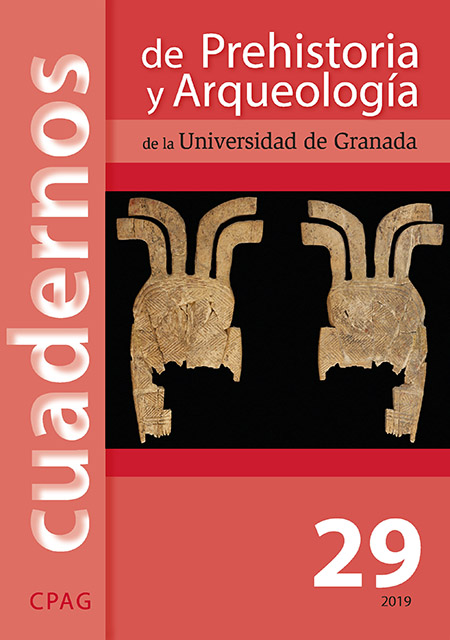ARTEFACTOS DE HUESO COMO TESTIGOS DE CONTINUIDAD CULTURAL EN TATARLI HÖYÜK
Contenido principal del artículo
Resumen
Este artículo es una evaluación preliminar de un conjunto de artefactos de hueso procedentes de Tatarlı Höyük, en Adana, Turquía. Este yacimiento ocupa un lugar importante en la historia de los asentamientos en Cilicia y muestra una ocupación continuada y característica hasta los inicios de la dominación romana. Además de los ornamentos personales, tales como cuentas y colgantes, se han documentado herramientas empleadas en diferentes actividades cotidianas en Tatarlı Höyük, especialmente relacionadas con el tejido, tales como espátulas, ruedas de huso, agujas, útiles apuntados y mangos, los cuales componen parte del conjunto óseo trabajado. La mayoría de las herramientas de la actividad textil en este conjunto de hueso son asumidas como evidencia de la importancia económica y continuidad que la industria del tejido ocupó en Tatarlı Höyük.



